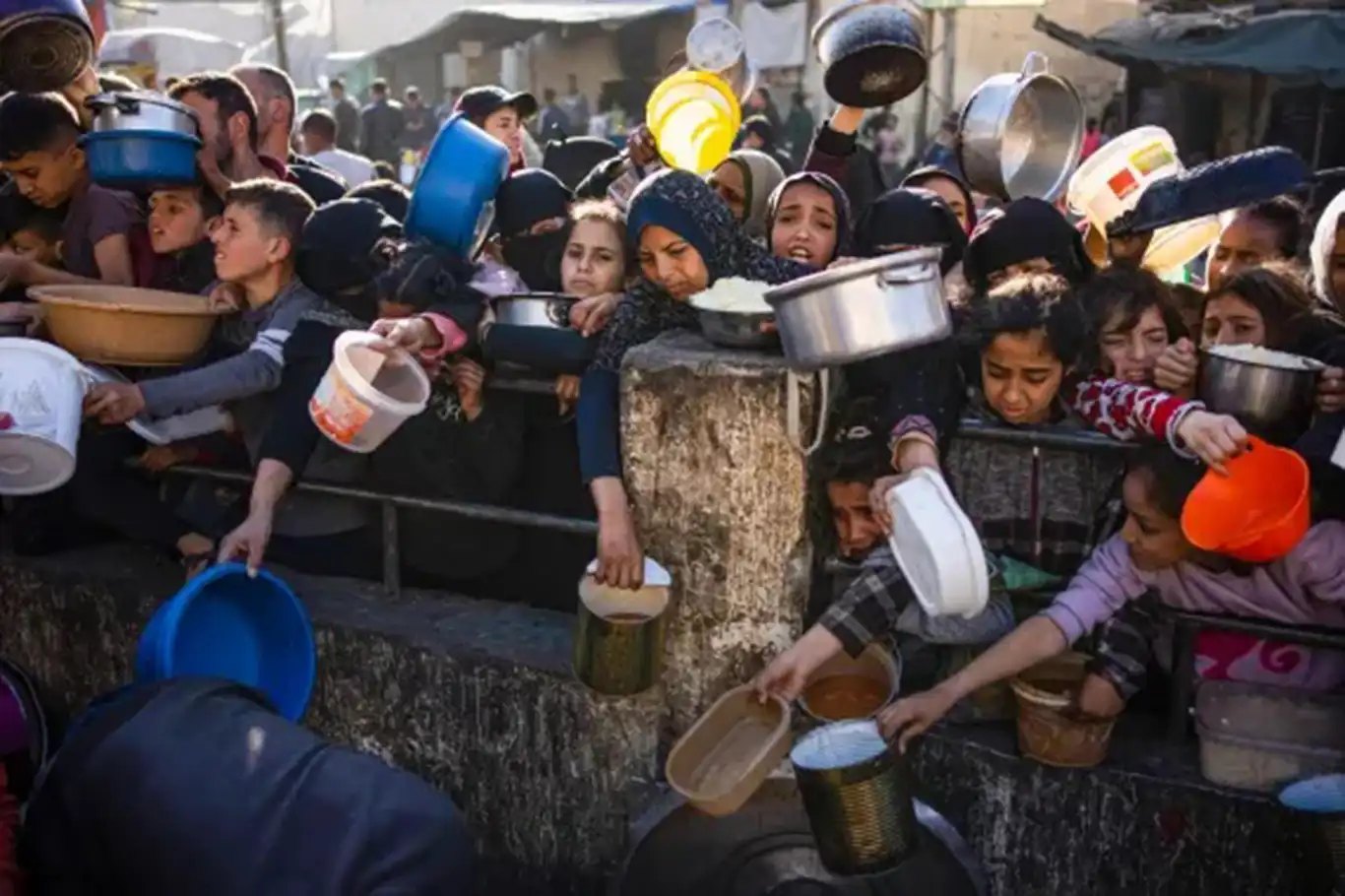UN slams Israel’s plan to weaponize Gaza aid amid famine threat


The United Nations has condemned a reported Israeli proposal to deliver humanitarian aid through military-controlled hubs in Gaza, calling it a “deliberate attempt to weaponize aid” that violates the principles of neutral, impartial, and independent aid delivery.
The proposal, outlined by Israeli authorities on Monday, comes amid plans to escalate military operations against Hamas, including the “capture” of Gaza and comments from Israeli Finance Minister Bezalel Smotrich suggesting the territory’s complete destruction.
Jens Laerke, spokesperson for the UN’s Office for the Coordination of Humanitarian Affairs (OCHA), described the dire situation in Gaza, where 19 months of conflict and a prolonged border blockade have left over two million people facing starvation. “People are rummaging through garbage, trying to find something edible. That is the harsh, brutal, inhuman reality,” Laerke said during a briefing in Geneva. He accused Israeli officials of attempting to dismantle the existing aid system, operated by 15 UN agencies and 200 NGOs, as part of a strategy to pressure Hamas into releasing hostages taken during the October 7, 2023, attacks that sparked the war.
The UN has warned that Israel’s border closures violate international law and risk fueling famine. UN food sector partners in Gaza have exhausted their supplies, with no resources left to distribute. The health crisis is equally severe, with nearly 10,000 children treated for acute malnutrition since January, including 1,397 with life-threatening severe cases, according to the World Health Organization (WHO). “Without treatment, you will die,” said WHO spokesperson Dr. Margaret Harris, noting that displacement and chaos prevent many children from accessing care. Rising cases of acute watery diarrhea and skin diseases are linked to the collapse of water and sanitation infrastructure.
In southern Gaza, all Palestine Red Crescent Society emergency and primary healthcare centers in Rafah have shut down due to ongoing hostilities, with only 16 of 29 clinics across the enclave partially operational. Fuel shortages threaten to halt health, water, sanitation, and communication services entirely. While a small amount of fuel was retrieved for desalination plants in Deir al Balah, Israeli authorities continue to block larger supplies in Rafah, according to UN Deputy Spokesperson Farhan Haq.
Despite these challenges, humanitarian partners are providing limited hot meals, water, shelter, and medical services, but resources are nearly depleted. “Time is running out,” Haq warned, emphasizing that operations will cease without immediate access to essential supplies at scale. Laerke reiterated calls for a permanent ceasefire and the unconditional release of hostages, condemning both the use of hostages as bargaining chips and the withholding of civilian aid as war crimes.
In the occupied West Bank, the UN raised alarms over escalating violence and demolitions. On Wednesday, Israeli forces demolished over 30 structures in Khallet Athaba, Hebron, displacing about 50 people. In Tulkarm’s Nur Shams refugee camp, six homes were destroyed, and over 50 families face evacuation orders, sparking concerns about potential forcible transfers. The UN continues to urge all parties to prioritize humanitarian needs and uphold international law to avert further catastrophe. (ILKHA)
LEGAL WARNING: All rights of the published news, photos and videos are reserved by İlke Haber Ajansı Basın Yayın San. Trade A.Ş. Under no circumstances can all or part of the news, photos and videos be used without a written contract or subscription.
Chilean authorities confirmed on Friday that a small ambulance aircraft carrying six people has been found crashed near the town of Curacaví, west of the capital Santiago. Tragically, there were no survivors.
Medical sources in Gaza reported Friday that the death toll from Israel’s ongoing military onslaught on the Gaza Strip has soared to at least 52,787, with the number of wounded rising to 119,349, as the humanitarian catastrophe deepens in the besieged enclave.
Sayyed Abdul-Malik al-Houthi, the leader of Yemen’s Ansar Allah movement, emphatically rejected U.S. President Donald Trump’s claims that Yemen’s stance on the Palestinian cause was born out of weakness or surrender.
Iran has strongly rejected a recent Fox News report alleging the existence of a covert Iranian nuclear weapons facility, dismissing the claims as part of a disinformation campaign aimed at sabotaging ongoing nuclear talks with the United States.